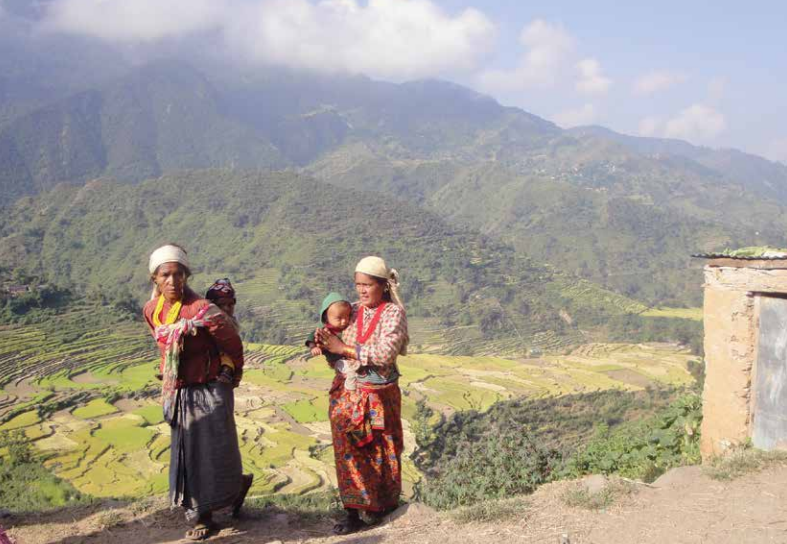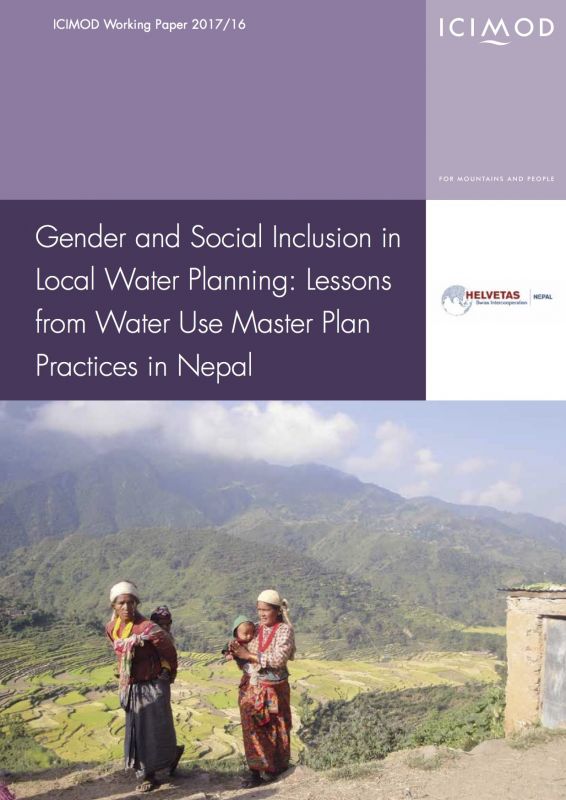Gender and Social Inclusion in Local Water Planning
Published on by Water Network Research, Official research team of The Water Network in Academic
International Centre for Integrated Mountain Development (ICIMOD) has published a report which stresses the importance of gender-sensitive water planning at a local level, and discusses current and future strategies
'Gender and Social Inclusion in Local Water Planning: Lessons from Water Use Master Plan Practices in Nepal'

Image from the report
Foreword The water resources and freshwater ecosystems in the transboundary river basins of the Hindu Kush Himalaya (HKH) are a source of survival and other livelihoods opportunities for people.
Though the region is known for a physical abundance of water, the reality is that most communities in the basin still live in a state of water poverty. They face serious challenges of water scarcity and water-induced disasters caused by both climatic factors and human impacts. Competition for access to and control of water increases the likelihood of water conflicts in the region.
Existing water inequities are further aggravated by persisting disparities in gender, class, caste, location and power politics. Since its establishment in 1983, ICIMOD has dedicated considerable effort to improving the lives of women and men of the region.
 Achieving gender equality in HKH is one of ICIMOD’s key goals in the countries of the HKH that also suffer from increased water scarcity and water induced disaster. In water scarce situations and water-induced disasters, gender sensitive water planning at local level is crucial. One local planning practice in Nepal is preparation of water use master plans (WUMP) for the village development committee.
Achieving gender equality in HKH is one of ICIMOD’s key goals in the countries of the HKH that also suffer from increased water scarcity and water induced disaster. In water scarce situations and water-induced disasters, gender sensitive water planning at local level is crucial. One local planning practice in Nepal is preparation of water use master plans (WUMP) for the village development committee.
ICIMOD’s Koshi Basin Programme in partnership with HELVETAS Swiss Intercooperation Nepal has been piloting the WUMPs in the mountains, hills and floodplains of the Koshi basin in Nepal since 2013 to increase the participation and role of women and marginalized groups in local water planning and decision making.
The initiative supports the Government of Nepal’s greater national goal of developing progressive steps towards a participatory and inclusive sustainable development practices in integrated water resource management. There are already inspiring examples in some districts where local development budgets are setting aside funds to invest in WUMPs.
ICIMOD and HELVETAS have conducted this study of local water planning in Nepal at a time when the country is restructuring towards a federal system, and WUMP practices could provide avenues to craft new water policies and guidelines in a more gender equitable and socially inclusive manner.
With Nepal as a model for such an initiative, ICIMOD aims to study and understand local planning in other countries in the HKH as well.
Find the full report in the attachment
or download it from the source: ICIMOD
Media
Taxonomy
- Resource Management
- Water Access
- Gender Equality
- Water Resource Management
- Access
- Gender Development
- Gender Rights
- Water Resource Management